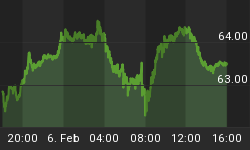In the late '90s and early 2000s, bearish financial commentators would relate how the trend toward personal and public bankruptcies was on the rise, threatening the U.S. financial system with instability. This much was true as public bankruptcies began picking up momentum around 1998 and increased every year until peaking in 2001, thus laying the ground for the 2000-2002 bear market. Even now that the bear market has ended, you can still hear commentators who are bearish on the prospects of the U.S. economy talk about bankruptcies. But what they evidently fail to realize is that the trend toward bankruptcy has actually peaked and is on the wane -- a major piece of evidence that we are in fact in the early stages of a longer-term recovery.
According to the July issue of The Turnaround Letter (Suite 801, 225 Friend St., Boston, MA 02114; George Putnam, Editor), the trend toward publicly-listed companies filing for bankruptcy is shrinking. As of mid-year 2004, only 44 listed companies have filed for Chapter 11. At the current rate, this will put public bankruptcies back in line with the lower levels of the early-to-mid 1990s. Below is what the 14-year trend in public bankruptcy filings looks like. A picture is worth a thousand words.

In terms of total assets of the bankruptcies of the past 14 years, the years 2001-2002 were by far the worst, with combined public assets of $639 billion for the companies filing for Chapter 11. Of the past 14 years, 1994 was the lowest year for bankruptcy filings with total assets of only $8 billion. Year-to-date in 2004, the total in pre-filing assets of publicly traded companies is $15 billion.
Going back further in U.S. bankruptcy filing history we find once again the evidence of the 10-year cycle at work. The X-04 year of each decade tends to see the lowest number of public bankruptcy filings because by that time along the cycle most of the weak companies have been weeded out. The initial years of each decade tend to be the weakest, in economic terms, with a tendency toward improving strength in the years X-05 through X-09. So far, this pattern seems once again to be repeating -- a sign that the economy is still on its way to recovery. Bears take note!
What the latest bankruptcy data shows is that the vast majority of the lingering weakness in the public sector has already been washed out of the economic system and the economy has already hit rock bottom. It has nowhere to go but up in the coming years.















